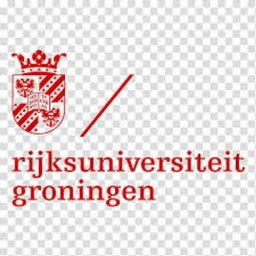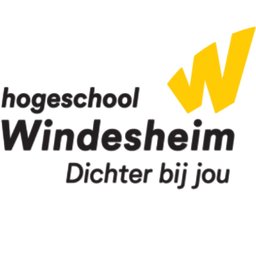Job Opportunities in Netherlands

September 6, 2024
Rijksuniversiteit Groningen
Groningen
OTHER
PhD The roles of siblings and school peers in young adults’ life-course events
Project Description
The Ph D researcher will work in the project ‘The roles of siblings and school peers in young adults’ life-course events’, led by Principal Investigator Clara H. Mulder and funded by an Open Competition Large grant from the Dutch Science Foundation (NWO). The research team will further include a postdoc researcher, an assistant professor who will co-supervise the Ph D project, and collaborators from the University of Groningen and Statistics Netherlands (CBS). In the project, we aim to identify the roles of siblings and school peers in the occurrence, timing, and outcomes of important life-course events in young adulthood. The events are leaving the parental home, residential relocations, and entry into post-secondary education and the labour market. We will investigate differentiation in sibling and school-peer roles with regard to advantage versus disadvantage, gender, migrant background, age, and time period. We will use register data covering the entire population of young adults in the Netherlands, including newly developed family and school-peer network data, and analyse these data with advanced statistical methods. The results may help combat inequality and enhance young adults’ ability to realise their potential. The envisaged role of the Ph D researcher will be to work on leaving the parental home or, according to preference and expertise, residential relocations (residential mobility, internal migration). The end product will be scientific journal articles, to be combined in a Ph D thesis. The Ph D researcher will also write outreach articles and help organise stakeholder workshops. A contribution to teaching is expected.
Organisation
The Ph D researcher will be hosted by the Faculty of Spatial Sciences (FSS), Population Research Centre, of the University of Groningen. FSS is a dynamic faculty with an open character. With approximately 100 employees and 100 Ph D researchers, we focus on highly qualified education and research in the field of planning, demography and human geography. With two bachelor's degrees and seven master's programmes, the faculty offers broad training opportunities to around 1,100 students all over the world.
The Ph D researcher will work in the project ‘The roles of siblings and school peers in young adults’ life-course events’, led by Principal Investigator Clara H. Mulder and funded by an Open Competition Large grant from the Dutch Science Foundation (NWO). The research team will further include a postdoc researcher, an assistant professor who will co-supervise the Ph D project, and collaborators from the University of Groningen and Statistics Netherlands (CBS). In the project, we aim to identify the roles of siblings and school peers in the occurrence, timing, and outcomes of important life-course events in young adulthood. The events are leaving the parental home, residential relocations, and entry into post-secondary education and the labour market. We will investigate differentiation in sibling and school-peer roles with regard to advantage versus disadvantage, gender, migrant background, age, and time period. We will use register data covering the entire population of young adults in the Netherlands, including newly developed family and school-peer network data, and analyse these data with advanced statistical methods. The results may help combat inequality and enhance young adults’ ability to realise their potential. The envisaged role of the Ph D researcher will be to work on leaving the parental home or, according to preference and expertise, residential relocations (residential mobility, internal migration). The end product will be scientific journal articles, to be combined in a Ph D thesis. The Ph D researcher will also write outreach articles and help organise stakeholder workshops. A contribution to teaching is expected.
Organisation
The Ph D researcher will be hosted by the Faculty of Spatial Sciences (FSS), Population Research Centre, of the University of Groningen. FSS is a dynamic faculty with an open character. With approximately 100 employees and 100 Ph D researchers, we focus on highly qualified education and research in the field of planning, demography and human geography. With two bachelor's degrees and seven master's programmes, the faculty offers broad training opportunities to around 1,100 students all over the world.
Qualifications
We are looking for candidates with
- A Master degree in population studies, demography, human geography, economics, sociology or another relevant social science, to be completed before the starting date (around February 2025).
- Excellent study results.
- Excellent quantitative research skills; preferably experience in multivariate statistical analyses of large survey or register data sets.
- Good writing skills and fluency in written and spoken English; experience in academic writing in English; preferably mastering some Dutch or willing to learn Dutch.
- A keen interest in the topics to be investigated in the project, preferably demonstrated by previous work on similar topics.
- Strong conceptual thinking.
- Strong motivation, good communicative skills, proactive and independent work attitude.
- Strong planning skills, ability to organize own work and related activities, ability to meet deadlines.
- A great curiosity and enthusiasm for scientific research.
Organisation
Conditions of employment
The appointment of the Ph D researcher is at the Faculty of Spatial Sciences at the University of Groningen. The Ph D researcher will be a member of the Graduate School of Spatial Sciences. The Ph D researcher will get the opportunity to participate in the Faculty’s training program for Ph D students and will draw up a personal training and supervision plan. The University of Groningen offers a salary of € 2,872 gross per month in the first year of the appointment, rising to € 3,670 gross per month in the fourth year of a full-time position. The conditions of employment comply with the Collective Labour Agreement for the University of Groningen. This full-time appointment as Ph D researcher is temporary for four years. You will first be appointed for a period of 12 months. After a positive evaluation, the contract will be extended for the remaining part of the project.
Starting date is 1 February 2025 or a few months earlier or later in consultation with the project leader.
Starting date is 1 February 2025 or a few months earlier or later in consultation with the project leader.
Application
You may apply for this position until 20 October 11:59pm / before 21 October 2024 Dutch local time (CEST) by means of the application form (click on "Apply" below on the advertisement on the university website).
The University of Groningen strives to be a university in which students and staff are respected and feel at home, regardless of differences in background, experiences, perspectives, and identities. We believe that working on our core values of inclusion and equality are a joint responsibility and we are constructively working on creating a socially safe environment. Diversity among students and staff members enriches academic debate and contributes to the quality of our teaching and research. We therefore invite applicants from underrepresented groups in particular to apply. For more information, see also our diversity policy webpage: https://www.rug.nl/about-ug/policy-and-strategy/diversity-and-inclusion/
Our selection procedure follows the guidelines of the Recruitment code (NVP): https://www.nvp-hrnetwerk.nl/nl/sollicitatiecode and European Commission's European Code of Conduct for recruitment of researchers: https://euraxess.ec.europa.eu/jobs/charter/code
We provide career services for partners of new faculty members moving to Groningen.
Acquisition and unsolicited marketing are not appreciated.
The University of Groningen strives to be a university in which students and staff are respected and feel at home, regardless of differences in background, experiences, perspectives, and identities. We believe that working on our core values of inclusion and equality are a joint responsibility and we are constructively working on creating a socially safe environment. Diversity among students and staff members enriches academic debate and contributes to the quality of our teaching and research. We therefore invite applicants from underrepresented groups in particular to apply. For more information, see also our diversity policy webpage: https://www.rug.nl/about-ug/policy-and-strategy/diversity-and-inclusion/
Our selection procedure follows the guidelines of the Recruitment code (NVP): https://www.nvp-hrnetwerk.nl/nl/sollicitatiecode and European Commission's European Code of Conduct for recruitment of researchers: https://euraxess.ec.europa.eu/jobs/charter/code
We provide career services for partners of new faculty members moving to Groningen.
Acquisition and unsolicited marketing are not appreciated.
Information
For information you can contact:- The project proposal can be obtained from the secretaries, secr.demography rug.nl
- Prof Clara H. Mulder, further information about the project that cannot be derived from the proposal, c.h.mulder rug.nl
We regret to inform you that this job opportunity is no longer available
Latest Job Opportunities
September 25, 2024
Tamarschool
Leerkracht voor de startklas (groep 1 en 2)
Den Haag
OTHER
View DetailsSeptember 25, 2024
Docenter
FREELANCE LEERKRACHT GEZOCHT – per 1 november
Den Haag
OTHER
View DetailsSeptember 25, 2024
Gro-up kinderopvang
Pedagogisch medewerker op het Meeuwennest
Zoetermeer
OTHER
View DetailsSimilar Jobs

September 6, 2024
Rijksuniversiteit Groningen
Post-doc The roles of siblings and school peers in young adults’ life events
Groningen
OTHER
View Details
September 13, 2024
Sportstuif
Vestigingsmanager bij Sportstuif - Sportieve Buitenschoolse Opvang
Vught
OTHER
View Details

September 10, 2024
Stichting Primenius
Schoolpsycholoog / Orthopedagoog-generalist Onderwijsondersteuningsteam
Oude Pekela
OTHER
View DetailsNew Jobs from This Company

September 24, 2024
Rijksuniversiteit Groningen
PhD in Assessing the reliability of news and online information
Groningen
OTHER
View Details
September 23, 2024
Rijksuniversiteit Groningen
Postdoc Modeling societal preparedness for health crises
Groningen
OTHER
View Details

September 20, 2024
Rijksuniversiteit Groningen
Vice-decaan Faculteit der Letteren
Groningen
OTHER
View Details